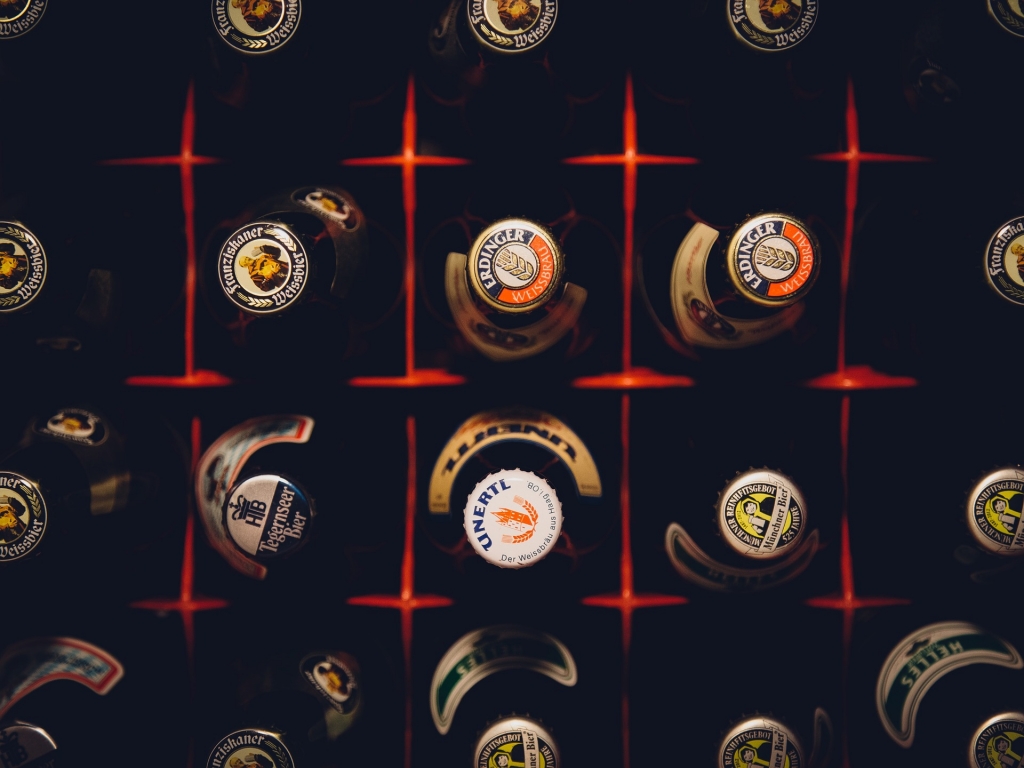 What are the drinking habits of young people in Britain? Drawing on a recent Demos report, Ian Wybron writes that heavy drinking remains an important part of the culture amongst young people in a variety of contexts – including at university and in the workplace – and explains some of the problems with official data on the matter.
What are the drinking habits of young people in Britain? Drawing on a recent Demos report, Ian Wybron writes that heavy drinking remains an important part of the culture amongst young people in a variety of contexts – including at university and in the workplace – and explains some of the problems with official data on the matter.
There is growing consensus that this generation of young people are more sensible with drink than their parents. Each year official statistics show fewer 16-24 year olds are binge drinking, with a growing number choosing not to drink at all. In 2012 David Cameron announced that his government would tackle the ‘scourge of binge drinking’, and this appears an area of policy that has gained traction.
Many column inches have been filled in trying to explain the positive trend, whether the result of greater health awareness, lower affordability of alcohol, stricter enforcement around underage sales, or the result of immigration. Yet it is less frequently mentioned that, despite the trend, 16-24 year olds remain the age group most likely to be drinking to excess, with one in five having binged in the last week. This is not a victory won.
Demos’ recent report on the drinking habits of young adults, Youth Drinking in Transition, shows that heavy drinking remains an important social glue amongst young adults in a variety of contexts, including on university campuses and in many UK workplaces, often at the expense of teetotallers. Two thirds of the students we surveyed for the research said they felt not drinking is a significant barrier to integrating socially; four in ten young workers said so.
Commonly, binge drinking was pitched by young adults we spoke to as a passing phase. We found that amongst those drinking heavily, particularly at university, binge drinking is often seen as a ‘rite of passage’. Events like Freshers’ Week, unique to the university experience, provide the perfect excuse for excessive and sometimes dangerous drinking – something students claim they will grow out of when they graduate and enter the world of work.
While for many this drinking maturity hypothesis will hold true, we also found that this more mature attitude to alcohol is proving elusive amongst young professionals, as drinking habits picked up at university follow them into the workplace. In our study, 32 per cent of young workers admitted binge drinking had negatively impacted on their work – actually a higher figure than the 23 per cent of students who claimed heavy drinking had taken a toll on their studies.
While much drinking occurs during meet-ups with non-work friends, 40 per cent of young workers feel that the drinking culture at their work is important. Particularly in top professions such as in business, law, and finance, drinking remains a powerful social currency – sometimes linked to success and promotion opportunities – as well as a salve for the stresses of modern working life, with a quarter of young workers citing stress as a typical reason to drink.
Like students, many young workers are passing the buck onto their future selves, claiming their excessive drinking habits are a normal phase before settling down with a family. But old habits die hard, and with young people living at home for longer and choosing to start families later in life, we face the risk of this phase becoming a lasting routine of excessive drinking.
The first challenge in tackling this problem is getting the figures right. Demos’ new research suggests that current data collection methods could be leading the government to significantly underestimate the scale of excessive drinking amongst young adults. Analysing Understanding Society data, which uses a self-completion questionnaire rather than the face-to-face interviews mostly used in the official alcohol surveys, Demos identified a rate of binge drinking amongst young people ten percentage points higher than the official statistics (29 per cent vs 19 per cent). In real terms, this would increase the number of 16-24 year olds drinking to excess by over 600,000. (The figure for the entire population is closer to 4 million.)
Creating a culture shift in universities and workplaces will of course be challenging, particularly where a binge drinking culture is firmly engrained in social life. Youth Drinking in Transition outlines a range of practical recommendations to government, universities and students’ unions, employers, and others, to guard against high levels of excessive drinking.
For students, a serious look must be taken at irresponsible drinks promotions, particularly prevalent in university culture, as well as the common practice of alcohol sales to those already drunk. Our research found that many universities and students’ unions are already working together in partnership to tackle alcohol harms and promote responsible drinking cultures on campus – including through the National Union of Students’ Alcohol Impact programme – but the crucial involvement of local pubs, clubs, and retailers is often lacking.
For their part, employers must engage workers in an open conversation on drinking and setting workplace alcohol policies – so often patchy, or non-existent – including how to ensure that work-based socialising and events are properly inclusive for non-drinkers. Government also has a role in this. Its Public Health Responsibility Deal – a tool for bringing these types of policies into the workplace – appears to have stalled with a change of government, with absolutely no clarity over what its next steps should be.
Youth Drinking in Transition also argues that further public information campaigns are to be encouraged, but those which abandon talk of units – shown to be ineffective in changing behaviour – in favour of using more common-sense language. This, as well as new campaigns which play on the apparent financial consciousness of this generation, making clear long-term cost savings from modest cut-backs.
In general, we know that moralising and scare-mongering about the dangers of alcohol does not work with young people: this generation are more aware than ever before about the health risks of excessive drinking. Responsible messaging on drinking must start early – in the home and at school – but our research makes clear that there is no silver bullet; responsibility must be shared by a range of actors at different stages in young people’s lives. Ultimately, creating positive alternatives to society’s defining social glue will be the key.
____
Read the full report on which the above is based here.
 Ian Wybron is a Researcher in the Public Services and Welfare team at Demos. His primary research interests are in education and skills.
Ian Wybron is a Researcher in the Public Services and Welfare team at Demos. His primary research interests are in education and skills.









We could all hope that it’s a passing phase, although I’m an not convinced that is the case. Personally, I think the rise in binge drinking among teens and young adults is the direct result of a few fundamental breakdowns in the home and society. In my opinion, we must turn our focus on doing more to coach and mentor our children.